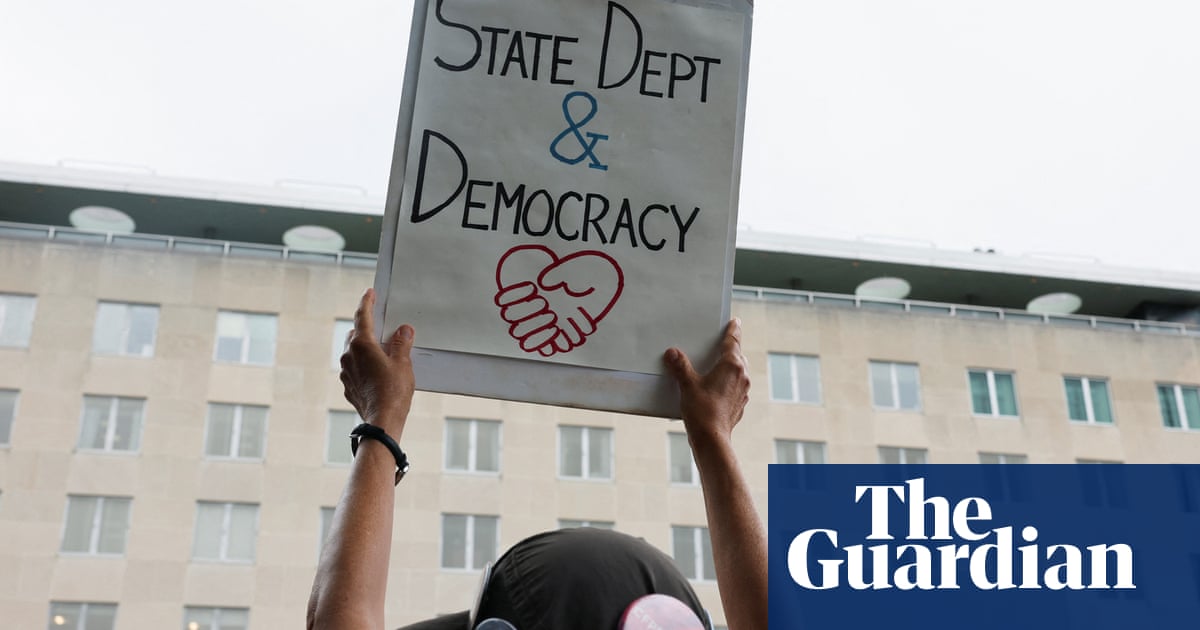The State Department’s Planned Mass Layoffs: A Major Restructuring Initiative
The U.S. State Department is on the verge of enacting its most significant restructuring in decades. This pivotal move includes plans for mass layoffs that officials say are essential to align with Donald Trump’s “America First” approach. The layoffs, colloquially known as reductions in force (or RIFs), are projected to impact approximately 1,800 employees, which represents about 15% of the State Department’s domestic staff.
Details of the Layoffs
In a recent memo, Michael Rigas, the deputy secretary for management and resources, delineated the department’s intent to notify those affected in the coming days. Expressing gratitude for their service, he emphasized the difficult but necessary nature of these cuts. The restructuring encompasses not only layoffs but also the pooling or complete elimination of several hundred bureaus within the department.
Impact on Diplomacy and Operations
The sweeping cuts raise questions about the future efficacy of U.S. diplomatic missions, which historically rely on a robust, knowledgeable staff to navigate complex international landscapes. Many insiders worry that diminished resources will compromise the quality of diplomacy and America’s ability to engage meaningfully in global affairs.
Concurrent Legal Challenges
As the State Department prepares for these layoffs, other significant political events unfold. A federal judge in New Hampshire recently blocked Trump’s controversial birthright citizenship executive order. This ruling has broad implications, certifying a class-action lawsuit that could safeguard thousands of children affected by the policy.
Additional Political Developments
Trade Relations with Brazil
In the realm of international trade, Brazil is gearing up to retaliate against Trump’s proposed 50% tariffs on its exports. This retaliation underscores the escalating tensions in Trump’s trade war, particularly with Latin America’s largest economy. As Brazil formulates its plans, the situation highlights the geopolitics surrounding trade agreements and national economic stability.
Tariffs on Canadian Imports
Amid these developments, Trump has announced intentions to implement a 35% blanket tariff on Canadian imports. This move, along with threats of additional tariffs on other international partners, raises concerns about potential economic ramifications on both sides of the border.
Mahmoud Khalil’s Legal Battle
Adding to the tumultuous political landscape, Mahmoud Khalil, a Palestinian activist and graduate student, has filed a $20 million claim against Trump administration officials. Khalil alleges false imprisonment and malicious prosecution stemming from his involvement in campus protests, thus spotlighting issues of civil rights and government accountability.
Financial Links to the Fossil Fuel Sector
Another significant point of interest is the revelation that Trump’s inaugural fund received over $19 million from the fossil fuel industry, raising eyebrows about the administration’s ties to big oil and its potential influence on policy decisions with environmental implications.
Planned Parenthood’s Medicaid Decision
Moreover, some Planned Parenthood offices have started rejecting Medicaid due to newly enacted provisions that defund the organization. This decision carries serious consequences for healthcare accessibility, particularly concerning reproductive health services for economically disadvantaged individuals.
Miscellaneous Political Events
Throughout this period of upheaval, other notable events include the suspension of six Secret Service agents following an assassination attempt against Trump, clashes between federal immigration officials and protesters in California, and Trump’s appointed interim NASA administrator in the wake of previous nominations.
Summary of the Current Landscape
These developments illustrate the drastic changes and contentious nature of U.S. politics as Trump’s administration embarks on its vision for governance. With a focus on restructuring domestic agencies, evolving legal challenges, and tumultuous international relations, the political landscape remains dynamic and charged. The impact of these decisions will undoubtedly resonate across various sectors—diplomatic, economic, and social—shaping the future of the nation both domestically and internationally.


